Greater Milwaukee Foundation history
The Greater Milwaukee Foundation was part of a movement that transformed philanthropy in the early 20th century. Local citizens pooled together their assets in a local foundation, allowing them to maximize their ability to address pressing local needs and plan for future challenges and opportunities.
Oliver C. Fuller introduced the idea to the Milwaukee community in 1915 after being inspired by the concept of a community trust first created in Cleveland the year before. President of the First Wisconsin National Bank, Fuller also was the Foundation’s first donor, making a personal contribution of $1,000 that he directed be divided between the Foundation’s operating expenses and a group of charities of his choosing.
The Foundation is Wisconsin’s oldest and largest community foundation – managing more than $1.1 billion in assets. It has awarded more than $1.2 billion in grants over the past century to support a wide variety of nonprofits and initiatives that enhance the quality of life in greater Milwaukee and beyond.
Milestones in Foundation history
Foundation continues systems change work with new department
In April, the Foundation created a Policy and Research Department to continue its efforts to advocate for supportive public policy in the early childhood education and other sectors. The department leverages research, data and civic engagement to enhance the Foundation’s evidence-based storytelling, collective action and policy efforts.
Foundation moves into ThriveOn King
In April, the Foundation moved into the fourth floor of ThriveOn King, 2153 N. Martin Luther King Jr. Drive. The building, formerly home to the Gimbels-Schuster’s Department Store, was redeveloped by Royal Capital as the new home of the ThriveOn Collaboration. In addition to the Foundation’s office, the building is home to the Medical College of Wisconsin’s community engagement programs, Malaika Early Learning Center, JobsWork MKE and a Versiti blood donation center location.
Greg Wesley selected as Foundation’s new leader
Greg Wesley becomes the Foundation’s new president and CEO. Wesley previously served as senior vice president of strategic alliances and business development at the Medical College of Wisconsin, where he was a key strategic leader, ambassador and advisor, and was responsible for ensuring the execution of MCW’s strategic initiatives through established and emerging partnerships. He was no stranger to the Foundation, having served as one of three co-chairs of the ThriveOn Collaboration, the historic partnership with the Foundation, MCW and Royal Capital. He also served on the Foundation Board from 2016 to 2024.
Cream City Foundation joins Greater Milwaukee Foundation family
In a move to enhance future growth, sustainability and impact in the LGBTQ+ community it serves, the Cream City Foundation joined the Greater Milwaukee Foundation in July as a supporting organization. In this specialized community foundation structure, Cream City Foundation maintains an independent board and decision-making power while benefitting from the investment expertise, administrative support and regional reach of the Greater Milwaukee Foundation. Established in 1982, Cream City Foundation has consistently answered the needs of the LGBTQ+ movement as they have changed and evolved, from fighting the AIDS crisis in its nascent years, to helping turn the tide of public opinion on the issue of same-sex marriage to supporting the well-being and rights of gender-nonconforming and transgender people and youth.
Milwaukee public-philanthropic housing partnership recognized nationally
The Greater Milwaukee Foundation received the 2023 HUD Secretary’s Award for Public-Philanthropic Partnerships for its work with the Community Development Alliance. The CDA works to bridge the housing gap among Black and Brown homeowners in conjunction with Milwaukee’s first collective affordable housing strategic plan. The Foundation is one of the CDA’s founding funders and a partner in its work.
Foundation launches historic fundraising campaign
The Foundation enters the public phase of a $700 million philanthropic campaign to build a Milwaukee for all. Its Greater Together Campaign, a comprehensive campaign spanning 2017-2023, offers an invitation for everyone in greater Milwaukee to play a catalytic role in realizing a generational vision for this community. Aligned with the Foundation’s North Star of racial equity and inclusion, the campaign includes addressing systemic racial disparities that have inhibited lives and livelihoods throughout Milwaukee’s vibrant Black and Brown communities.
Foundation hires first chief diversity and inclusion officer
Further advancing its generational commitment to racial equity and inclusion, the Foundation hires Kenyatta Sinclair as its first chief diversity and inclusion officer.
New financial milestone reached
The Foundation reaches the $1 billion mark in assets under management.
Cross-sector communitywide partnership created to address pandemic
To help alleviate the profound impact COVID-19 is having on Milwaukee and beyond, the Foundation forms a philanthropic coalition now known as the MKE Civic Action Team to identify greatest needs and quickly activate funding support and volunteer resources for maximum community impact.
New strategic plan
Foundation unveils new strategic vision for a Milwaukee for all that is guided by racial equity and inclusion and four corresponding strategy areas: reimagine philanthropy, catalyze systems change, build inclusive culture and convene and follow community voice.
New community-based partnership created with Medical College of Wisconsin
Recognizing an opportunity for enhanced impact around aligned goals, the Foundation and the Medical College of Wisconsin create a new community-based partnership to advance joint efforts designed to improve health and strengthen the community. The effort later grows to include developer Royal Capital and becomes known as the ThriveOn Collaboration.
Foundation puts commitment to community “On the Table”
The Foundation launches On the Table MKE as a platform for regionwide dialogue and change. The event provides a venue for communities to address a wide range of topics, with race and racism being a part of most conversations.
New innovative tool introduced to advance equitable opportunities
The Foundation launches a $1 million pilot program driven by impact investing, an innovative tool for social and economic impact. Often structured as equity investments or loans with favorable terms, each deal delivers a financial return so funds can be reinvested in new projects, particularly in underestimated and disinvested communities.
First-ever comprehensive study of Latino Milwaukee released
The Foundation commissions “Latino Milwaukee: A Statistical Portrait,” an unprecedented study to understand the demographics and conditions of Milwaukee’s burgeoning Latino community.
Foundation launches fund to heal and strengthen neighborhoods
The Foundation creates the Reasons for Hope MKE Fund and establishes a community advisory council with neighborhood leadership in response to unrest in Sherman Park, beginning the early stages of systemic improvement and change that advances the Foundation’s community-centered racial equity and inclusion work.
Foundation celebrates centennial year
The Foundation celebrates its 100th year by issuing monthly Gifts to the Community, which provide special access, experiences and opportunities to the public.
New grant program centers community voice
The Foundation pools resources with other funders to launch the Community Connections Small Grants Program, a participatory grantmaking process that is inclusive of residents making recommendations and decisions on grants.
Foundation receives largest gift in its history
Former U.S. Senator and Milwaukee Bucks owner Herb Kohl chooses the Foundation as steward for his $100 million gift, which is promised toward the development of a new arena in downtown Milwaukee for the NBA team.
Online giving event held to support basic needs
The Foundation launches Match Day, an online giving event to support food and shelter agencies in southeastern Wisconsin. On March 8, in less than 24 hours, $1.8 million is raised for 19 basic needs agencies.
Foundation creates new collective impact partnership focused on education
The Foundation launches Milwaukee Succeeds, a cradle-to-career education partnership that focuses on ensuring success for all children in all schools throughout Milwaukee.
Racial equity included as new focus area for Foundation
The Board approves new strategic leadership areas, including the promotion of racial equity and inclusion.
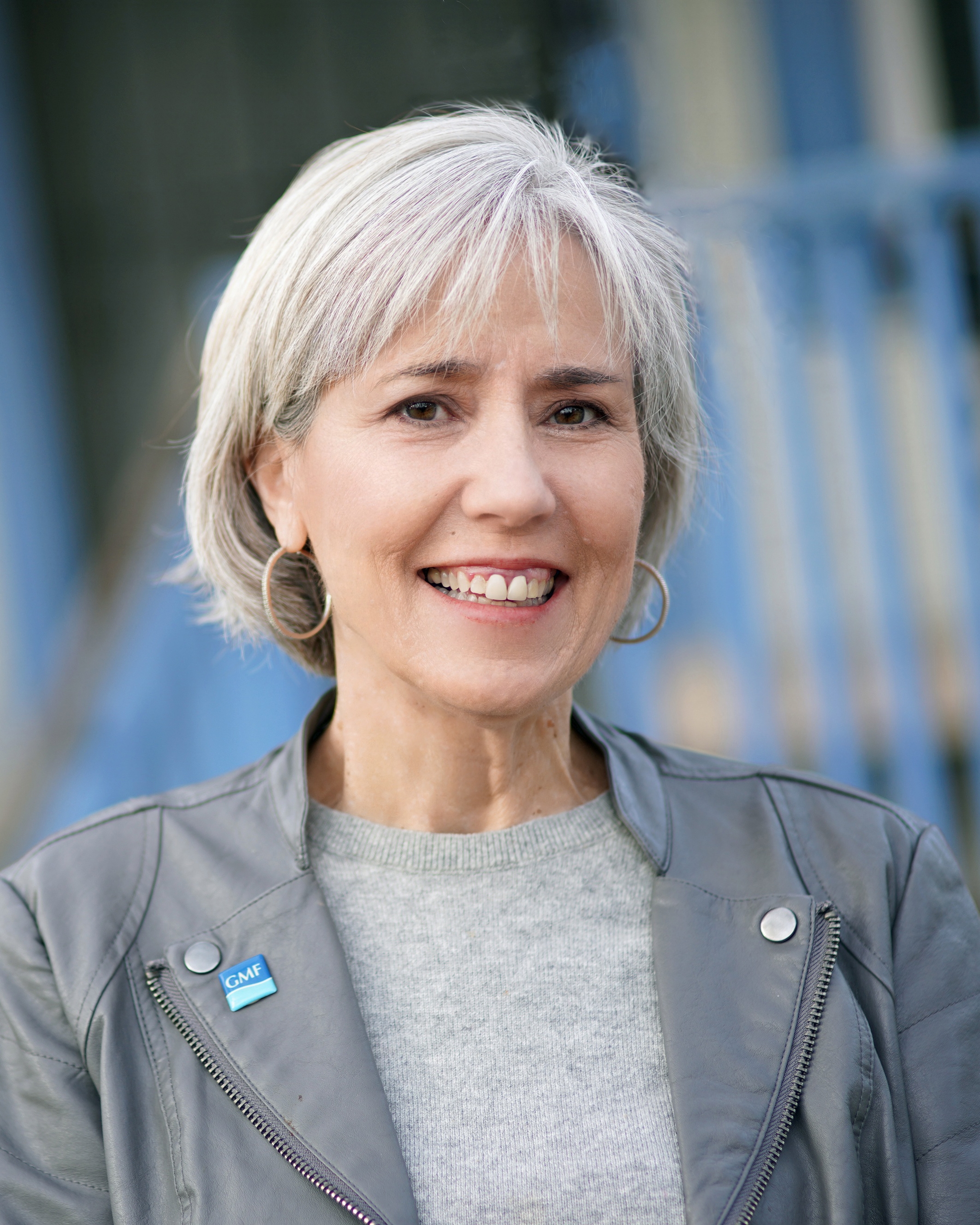
Ellen Gilligan becomes new Foundation leader
Ellen M. Gilligan becomes the Foundation’s president and CEO. The Cincinnati native comes to Milwaukee with nearly 30 years of nonprofit sector experience at such places including United Way of Greater Cincinnati, United Way of America, Local Initiatives Support Corporation and Greater Cincinnati Foundation.
Foundation hits milestone in assets
Through the generosity of donors and through solid investment performance, the Foundation reaches $500 million in assets. It also receives its highest level of individual contributions in one year: $60.8 million.
Foundation receives gift from donor Mary L. Nohl
Local painter and sculptor Mary L. Nohl leaves a $9.6 million bequest to the Foundation, the largest individual gift to date.
Milwaukee Foundation changes its name
The Milwaukee Foundation changes its name to Greater Milwaukee Foundation to better reflect the broad geographic area it serves.
West Bend Community Foundation becomes first geographic affiliate
With $1 million in combined contributions from local West Bend leaders Cliff Nelson, former bank executive and vice president of West Bend Company, and Douglas Ziegler, former president and CEO of the Ziegler Cos., the West Bend Community Foundation is born.
Nonprofit Management Fund created
Milwaukee Foundation, Faye McBeath and Helen Bader foundations launch a funder’s collaborative to address the challenges facing nonprofits and improve their management effectiveness and efficiency.
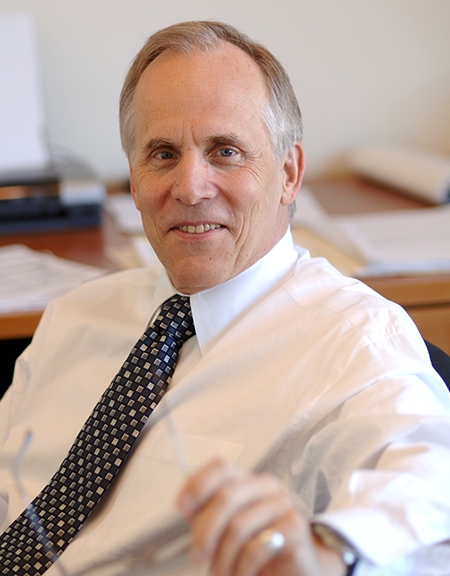
Foundation welcomes second leader in its history
Cleveland native Doug Jansson succeeds David Huntington as Foundation leader on Jan. 1. No stranger to the community foundation world, Jansson served as the executive director of the Rhode Island Foundation of Providence for 14 years and spent five years working at the Chicago Community Trust.
Foundation creates fund to address AIDS epidemic
The Wisconsin AIDS Fund is established to support programs directed at the prevention and spread of AIDS, and care and treatment services for those infected in Wisconsin, primarily greater Milwaukee. It is the only fund in the state focused on AIDS.
Women’s Fund created
A 36-member task force of local female leaders, including former State Sen. Alberta Darling, Sue Dragisic, Sister M. Kliebhan and Betty V. Quadracci, creates the Women’s Fund, with $50,000 in seed money from the Foundation. Milwaukee joins about 35 other cities that have created funds specifically for the needs of women and girls. It remains part of the Foundation before becoming a nonprofit in 2005.
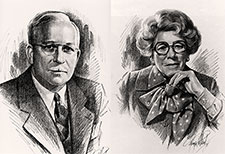
Stiemke stirs Foundation growth, development
After 20 years as a private foundation, the Walter and Olive Stiemke Foundation transfers $8.7 million in assets to the Milwaukee Foundation on Dec. 31. Its main purpose was to meet the capital needs of local agencies, but for years, the Stiemke Foundation made annual grants to the Milwaukee Foundation to facilitate its management, development and public awareness. The two foundations also shared staff and offices at the Pabst Building, 108 E. Wisconsin Ave. The new fund becomes the largest of the Milwaukee Foundation’s 119 funds and brings its total assets to more than $40 million.
$1 million in grants
For the first time in its history, the Foundation awards more than $1 million in grants.
First agency endowment created
The United Performing Arts Fund contributes $39,240 to create the Foundation’s first agency endowment fund. The umbrella arts organization was created to ensure the financial stability of organizations that would be performing in downtown Milwaukee’s performing arts center.
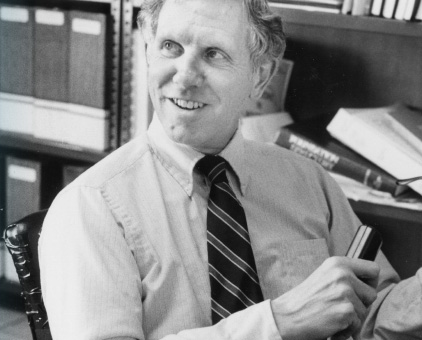
Foundation welcomes first executive director
After 55 years without any dedicated staff, the Foundation welcomes its first full-time staff member and its first executive director by hiring David Huntington, former director of placement at the University of Chicago Graduate School of Business. He also serves as secretary for the Faye McBeath Foundation and administrator of the Walter and Olive Stiemke Foundation.
Foundation awards its first civic award
The Foundation presents Walter H. Bender, president of the Milwaukee County Park Commission, with the William C. Frye Award. The civic award was created through Frye’s will to honor individuals who “contribute something to make a better community of the city of Milwaukee, the place of my birth.” At the time of his death, Frye was the chair of the Milwaukee Foundation Committee and had dedicated 20 years of service to the Foundation. Bender was a leader in the planning and development of the Milwaukee County Zoo, Mitchell Park Conservatory, Milwaukee County Stadium and the lakefront marina.
Foundation reaches $1 million in assets
The Foundation reaches $1 million in assets, thanks to a $200,000 bequest of Edith Greenwald, the widow of Oscar Greenwald. Oscar was the grandson of Gimbels department store founder, manager of the Milwaukee Gimbels and a former Foundation Board member from 1925 to 1941.
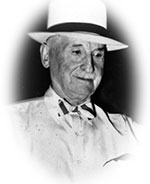
First scholarship fund created
A $100,000 bequest from Emil Blatz leads to the creation of the Foundation’s first scholarship fund. Blatz served as bookkeeper, cashier and traveling auditor for Milwaukee’s Blatz Brewery and was a well-known Milwaukee philanthropist.
First unrestricted fund created
At the height of the Depression, the Hummel, Gregg and Wells Trust terminates and transfers more than $10,000 in assets to the Milwaukee Foundation, creating the first unrestricted fund.
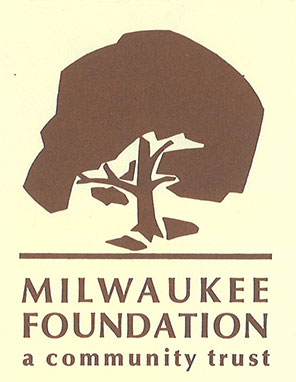
The start of the foundation
After a declaration of trust is signed in May, establishing the First Wisconsin Trust Company as the trustee that will accept and manage gifts, the Milwaukee Foundation is born. The Foundation awards its first grant in August - $50 to the Wisconsin University Settlement Association. Its first permanent fund is created when Milwaukee meat packing industrialist Patrick Cudahy gives $25,000 in November to the Wisconsin Trust Company.